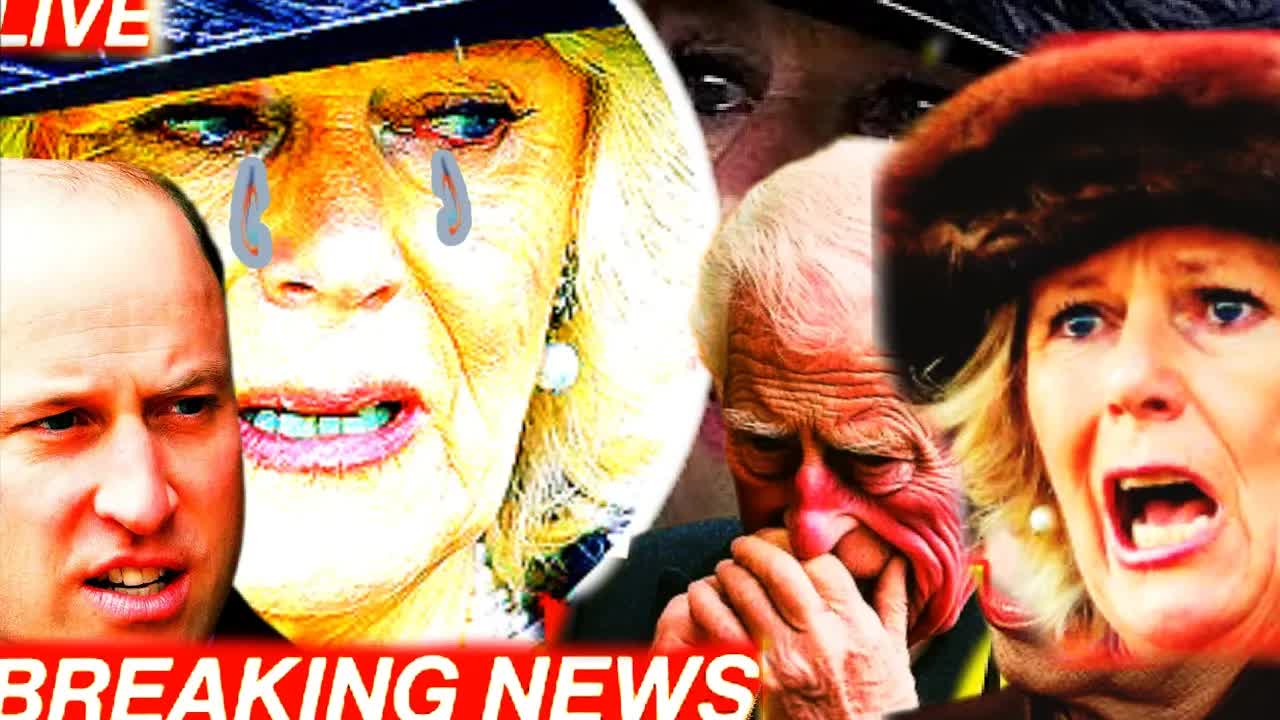Must Read
A Royal Shift: King Charles Faces Health Challenges as Prince William Prepares for Kingship
In the dynamic world of the British monarchy, significant changes are on the horizon that could alter the royal family's trajectory.
King Charles is currently confronting health issues, including a serious battle with cancer, leading to speculation about whether he might step down from the throne sooner than expected.
If this were to happen, it could allow Prince William to ascend to kingship much earlier than many had predicted.
The implications of such a transition extend beyond mere royal protocol; they resonate deeply on an emotional and historical level.
King Charles, who was crowned alongside Queen Camilla in 2023, is under increasing scrutiny as his health challenges cast a shadow over his ability to fulfill his duties as head of state.
At 75, the monarch's condition has sparked discussions about the possibility of him passing the crown to his eldest son, Prince William.
This potential abdication weighs heavily on both the king and the monarchy itself.
Charles began his reign with high hopes, but the realities of health struggles are now complicating his leadership.
The decision to step aside is never simple; it involves personal sacrifices and the daunting task of ensuring a seamless transition while maintaining stability within the institution.
As rumors of King Charles's possible abdication circulate, attention increasingly shifts to Prince William.
He is being viewed as the next in line who may need to take on royal duties sooner rather than later.
Reports suggest that the Prince of Wales has been engaged in frequent discussions with his father at the palace, preparing for the responsibilities that could soon fall to him.
William's preparation for kingship is taking shape through active involvement in state matters.
This isn't just ceremonial duty; it's a strategic move to ensure he is equipped to lead if the time comes.
By stepping up his engagement in royal activities, William is laying the groundwork for a smooth transition, should it occur.
The prospect of Prince William becoming king under these circumstances carries profound emotional weight.
For him, this shift wouldn't merely be a change in title; it would mark a significant moment both personally and publicly.
Assuming the role of king while his father is unwell would undoubtedly be an emotionally charged experience, symbolizing a new chapter in the British monarchy's narrative.
Historically, the British monarchy has seen many transitions, each defined by its unique context.
If Prince William were to ascend the throne amid his father's health struggles, it would not only alter the line of succession but also redefine the monarchy's approach to contemporary challenges.
Public sentiment regarding this potential shift is likely to vary.
Many may rally behind Prince William, given his popularity and the positive image he has cultivated through charitable work and efforts to modernize the monarchy.
His commitment to environmental initiatives and social causes resonates with the public, positioning him as a beacon of hope for the future.
Conversely, the idea of King Charles stepping down due to health concerns might evoke feelings of sadness among those who have supported him throughout his reign.
The emotional landscape surrounding this transition will be complex, and media coverage is likely to amplify these sentiments, generating a whirlwind of speculation and commentary.
Looking ahead, the monarchy's future remains uncertain yet filled with possibilities.
Should King Charles decide to step aside, the focus will shift to ensuring a dignified and orderly transition to Prince William.
This process will require meticulous planning and clear communication to address any challenges that may arise during this pivotal moment.
Prince William's readiness to assume kingship will be crucial in shaping the monarchy's future.
His leadership style, ability to tackle modern issues, and vision for the royal family will significantly influence how the institution evolves in the years to come.
This transition may also prompt a re-evaluation of how the monarchy engages with the public and addresses global challenges.
The potential handover of power from King Charles to Prince William signifies a monumental event in the history of the British monarchy.
It represents a time of uncertainty mixed with opportunity, as the institution navigates health crises and prepares for a new era of leadership.
The emotional weight of this transition, coupled with its historical significance, is bound to capture global attention.
As we witness this unfolding narrative within the British royal family, the future remains a canvas of possibilities.
The monarchy stands at a crossroads, ready to reflect on its past while embracing the present and looking toward a future where it continues to play a vital role in shaping society.
The coming months promise to be intriguing, and the world will be watching closely to see what unfolds next.




































